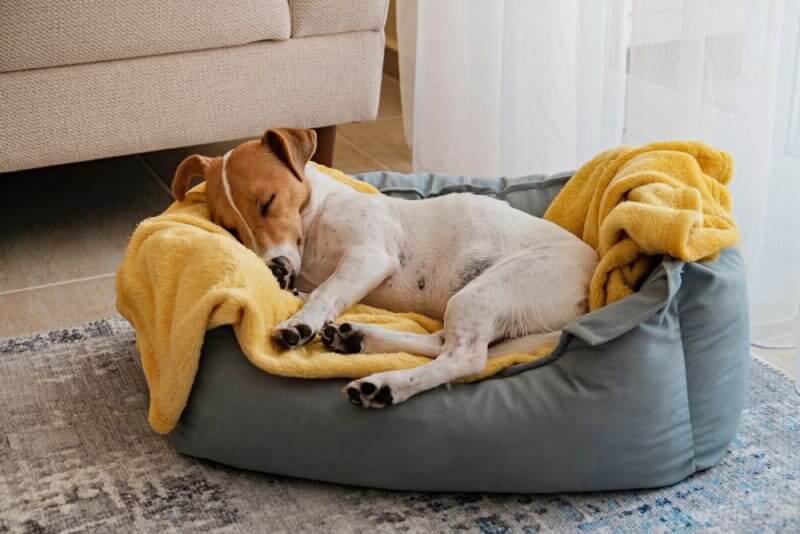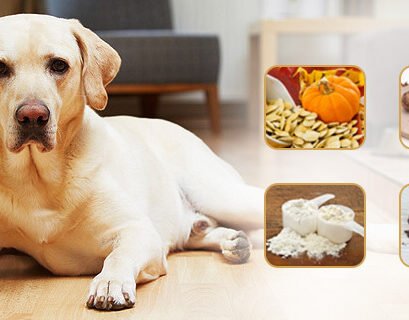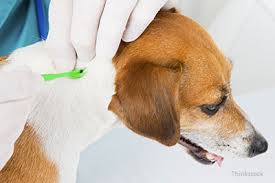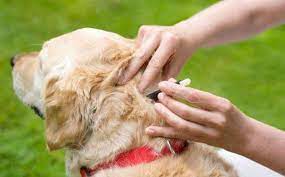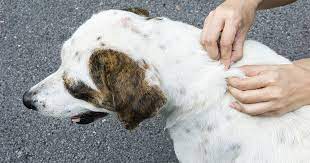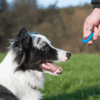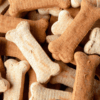What Happens After Neutering?
Neutering is a common surgical procedure performed on dogs to prevent them from reproducing. While it is a routine operation, it can still be a stressful experience for your furry friend. After the surgery, your dog may feel discomfort and pain, and it is important for you as their caregiver to provide the necessary comfort and support during the recovery period.
Understanding Your Dog’s Needs Post-Neutering
After being neutered, your dog will experience physical changes that may affect their behavior and overall well-being. The anesthesia used during the surgery may take some time to wear off, causing your dog to feel groggy and disoriented. It is crucial to understand that your dog may experience pain, swelling, and tenderness around the surgical site. They may also have decreased appetite and energy levels. Being aware of these changes will help you provide the necessary care and support.
Creating a Calming Haven for Recovery:
Quiet Corner: After surgery, your dog needs a peaceful space to rest and recuperate. Choose a quiet area in your home, away from loud noises and excessive activity. This could be a designated room, a crate, or a comfortable dog bed in a secluded corner.
Soothing Presence: Maintain a calm and gentle demeanor around your dog. Avoid loud voices or overly excited interactions, as this can stimulate them and hinder healing. Instead, offer gentle petting and soft spoken reassurance.
Addressing Discomfort and Pain:
Pain Medication: Following your veterinarian’s instructions is crucial. Administer any prescribed pain medication on time to ensure your dog’s comfort throughout the recovery process.
Snuggle Therapy: Cuddling and petting your dog can provide much-needed comfort and security. Spending quality time together can also help alleviate their anxiety and promote relaxation.
Promoting Healing and Preventing Complications:
Restricted Activity: While your dog heals, limit their activity to short, controlled leash walks on flat surfaces. Avoid strenuous exercise, jumping, or playing for at least two weeks, as this can disrupt the healing process and potentially cause complications.
Monitor the Incision: Regularly check your dog’s incision site for any signs of redness, swelling, or discharge. These could be signs of infection, and if you notice anything unusual, contact your veterinarian immediately.
Additional Tips for a Smooth Recovery:
An Elizabethan Collar (Cone): This cone-shaped collar can prevent your dog from licking or chewing at the incision site, which could hinder healing and increase the risk of infection.
Mental Stimulation: While physical activity is restricted, keep your dog mentally engaged with puzzle toys, scent work games, or short training sessions that don’t require excessive movement.
By following these tips and adhering to your veterinarian’s specific instructions, you can ensure a comfortable and successful recovery for your dog after neutering. Remember, their well-being is your priority, and providing them with the right care and comfort during this time will strengthen the bond you share. This is the summery of the topic if you want to read in details for every step you need to read complete article.
Creating a Comfortable Recovery Space for Your Dog
One of the first steps in comforting your dog after neutering is to create a comfortable recovery space. Choose a quiet and secluded area in your home where your dog can rest undisturbed. Set up a cozy bed or blanket for them to lie on. Ensure that the recovery space is warm, as dogs may feel more sensitive to temperature changes after surgery. Keep the area clean and free from hazards that could potentially harm your dog during their recovery.
To make the recovery space even more soothing, consider using pheromone diffusers or sprays specifically designed for dogs. These products release calming scents that can help reduce anxiety and promote relaxation. Additionally, playing soft, soothing music or using a white noise machine can create a calming atmosphere for your dog.
Providing Pain Relief and Medication
Pain management is crucial during your dog’s recovery period. Your veterinarian will prescribe pain medications to help alleviate any discomfort your dog may be experiencing. It is important to administer the medication as directed by your vet. You may also want to discuss with your vet if there are any natural or alternative remedies that can be used in conjunction with the prescribed medication to enhance pain relief.
In addition to medication, you can provide physical comfort to your dog by applying a warm compress or using an ice pack (wrapped in a cloth) on the surgical site. This can help reduce swelling and provide relief. Always consult with your veterinarian before trying any home remedies to ensure they are safe and appropriate for your dog.
Monitoring and Managing Your Dog’s Activity Level
While your dog may be eager to resume normal activities, it is important to restrict their physical exertion during the recovery period. Excessive activity can delay healing and cause complications. Follow your veterinarian’s instructions regarding exercise restrictions and ensure that your dog gets plenty of rest.
To prevent your dog from engaging in strenuous activities, you may need to use a crate or playpen to limit their movement. This will help prevent them from jumping, running, or engaging in rough play. Gradually increase their activity level as advised by your vet, ensuring that your dog’s recovery is progressing well.
Offering Soothing and Calming Activities
Engaging your dog in soothing and calming activities can help distract them from any discomfort they may be experiencing. Gentle massage can be incredibly soothing for dogs. Using slow, gentle strokes, massage your dog’s muscles, being mindful of the surgical site. This can help reduce muscle tension and promote relaxation.
Another activity that can provide comfort to your dog is aromatherapy. Certain scents, such as lavender or chamomile, have calming properties and can help reduce anxiety. However, it is important to remember that not all scents are safe for dogs, so consult with your veterinarian before using any essential oils or scented products.
Maintaining a Consistent Routine and Environment
Dogs thrive on routine and familiarity. Keeping their routine as consistent as possible during the recovery period can help provide them with a sense of security and comfort. Stick to regular feeding times, walks, and play sessions as much as possible. Maintain a calm and stress-free environment by minimizing loud noises or sudden changes in the household.
Showing Extra Love and Attention to Your Dog
Your dog may be feeling vulnerable and in need of extra love and attention after neutering. Offer them reassurance and comfort by spending quality time together. Engage in activities that your dog enjoys, such as gentle play or grooming sessions. Provide plenty of praise and rewards for good behavior to boost your dog’s confidence and well-being.
Consulting with Your Veterinarian for Additional Guidance
Every dog is unique, and their recovery process may vary. It is crucial to consult with your veterinarian for personalized advice and guidance. They can assess your dog’s specific needs and provide additional recommendations to ensure a smooth and comfortable recovery. Regular check-ups and follow-up appointments will allow your veterinarian to monitor your dog’s progress and address any concerns that may arise.
Conclusion
Neutering is a common procedure that can help improve the overall health and well-being of your dog. Comforting your furry friend after the surgery is essential to ensure a smooth recovery. By understanding their needs, creating a comfortable recovery space, providing pain relief, managing their activity level, offering soothing activities, maintaining a consistent routine, showering them with love and attention, and consulting with your veterinarian, you can help your dog feel safe, secure, and supported during this post-neutering period. Remember, every dog is unique, so tailor your approach to suit their individual needs.
FAQs:
Comforting Your Dog After Neutering
Q: How long is a dog uncomfortable after being neutered?
Q: How do you comfort a dog in pain after surgery?
Here are some ways to comfort your dog after neutering:
- Create a calm and quiet environment for them to rest.
- Offer gentle petting and soft spoken reassurance.
- Administer any prescribed pain medication on time as directed by your veterinarian.
- Provide a comfortable bed and limit activity to prevent them from jumping, running, or playing too vigorously.
- Use an Elizabethan collar (cone) to prevent them from licking or chewing at the incision site.
Q: How do you carry a dog after neutering?
The best way to carry your dog after neutering depends on their size and your veterinarian’s instructions. Generally, for smaller dogs:
- Support their chest and hindquarters when lifting them.
- Avoid putting any pressure on their abdomen.
For larger dogs:
- Encourage them to walk on their own if possible.
- If you must carry them, use two people to support their weight evenly.
Q: Do dogs cry a lot after being neutered?
Q: How long will my dog be uncomfortable after neutering?
Most dogs experience some discomfort for the first 24-48 hours after surgery. However, with pain medication and proper care, they should be feeling much better within a few days.
Q: Is it okay for my dog to sleep a lot after neutering?
Yes, it’s normal for your dog to sleep more than usual during the initial recovery period. This allows their body to focus on healing.
Q: What if my dog seems overly lethargic or loses their appetite?
If your dog exhibits excessive lethargy, loss of appetite, or any other concerning symptoms, contact your veterinarian immediately. These could be signs of complications.
Q: When can my dog resume normal activities?
It’s typically recommended to restrict strenuous activity for at least two weeks following surgery. Consult your veterinarian for specific guidance on gradually reintroducing normal activity levels.
Q: How can I prevent my dog from licking the incision site?
Using an Elizabethan collar (cone) is the most effective way to prevent your dog from licking or chewing at the incision site, which can hinder healing and increase the risk of infection.
Q: Is it safe to bathe my dog after neutering?
Avoid bathing your dog for at least 10-14 days after surgery, or as instructed by your veterinarian. Getting the incision site wet can increase the risk of infection.
Remember: Always consult your veterinarian for personalized advice regarding your dog’s specific needs and recovery timeline after neutering.
Related Posts
Natural Dewormers for Dogs: Safe and Effective
March 15, 2024• Dog, Dog Health
How Do I Comfort My Dog After Neutering?
March 6, 2024• Dog, Dog Health
How to Remove Tick from Dog: Step-by-Step Guide
March 2, 2024• Dog, Dog Health
How to Get Rid of Fleas on Dogs Naturally: A Comprehensive Guide
March 2, 2024• Dog, Dog Health
How to remove the tick from a dog with alcohol?
February 28, 2024• Dog, Dog Health

